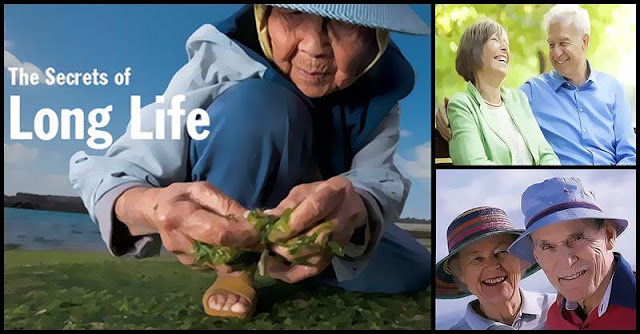As we get older, our body changes and decline. But still, the path we should take in order to have a longer and healthier life remain the same.
The secret to a longer life is doing a number of simple lifestyle changes such as eating nutritious foods, enjoying physical and mental activities, and cutting out bad health habits such as drinking alcohol and smoking. Aside from this, the amounts of vitamins and minerals your body get can also influence how long you live.
Vitamin D And Calcium
Vitamin D and calcium play a vital part in keeping you healthy. According to Harvard Health, getting enough calcium and vitamin D is one of the keys to a longer life. They are both needed by your body to function properly because they work hand in hand with one another.
Calcium is the building block of bone. It helps fight osteoporosis, and maintain bone strength throughout life. However, this nutrient can only reach its full bone building potential if your body has enough levels of vitamin D. These two works together to protect your bones. Calcium is the one that helps build and maintain bones, while vitamin D helps your body effectively absorb calcium.
Some of the foods that are rich in calcium are dairy foods such as cheese, yogurt, and milk; green leafy vegetables such as okra, broccoli, and cabbage; sardines, and nuts. Meanwhile, aside from sunlight, other sources of vitamin D are salmon, cod liver oil, sardines, oysters, tuna, egg yolks, shrimps, and mushrooms. Consider investing in these sources if you think that your body lacks calcium and vitamin D.
Healthy Fats, Veggies, Protein, And Exercise
It has also been found that eating a healthy diet rich in fruits, vegetables, wholes grains and healthier monosaturated and polyunsaturated fats can increase your chance of living longer. Along with all of these, you should also maintain healthy body weight and shape and at the same time try to learn new challenging activities. Exercise decreases the risk of all major health complications such as diabetes, cognitive decline, and heart diseases.
Fitting a hearty dose of protein every meal is really important as we get older. Protein plays an important role in keeping our muscles strong. Some of the good sources of protein are meat, fish, eggs, nuts, beans, and yogurt.
Ditch The Nicotine
One should also stop smoking since it only increases a person’s risk of heart diseases, stroke, lung problems, osteoporosis, and emphysema. Plus, it also compromises memory. After a smoker quits smoking his risks of heart disease as well as colorectal cancer begins to drop within a few months. In five years, it will already match that of someone who never smoked.
Never Char Your Food
According to the publishing arm of the Harvard Medical School, you should not overcook or burn your meat. When meat—be it beef, pork, fish, or poultry—is cooked at high temperatures, it forms a cancer-causing chemical known as heterocyclic amines (HCAs) and polycyclic aromatic hydrocarbons (PAHs). Any blackened, crispy bits of meat can increase your risk of prostate, pancreatic and colorectal cancer.
Keep The Water Flowing
Also, adequate intake of water can help with weight management, aging, skin health, and can make the body efficient.
Avoid Sugar And Alcohol
As we get older, cutting out non-nutritive foods like added sugars and really limiting sweets are necessary decisions we should make in order to live longer. The more sweets we have, the more inflammation we have. Inflammation has been linked to a greater risk for metabolic syndrome, joint pain, cardiovascular diseases, and diabetes.
As early as you can, break up with alcohol. Excessive consumption of alcohol will only increase your risk of high blood pressure, dementia, heart diseases, and cancer.
By following the tips mentioned above, you can live a healthier, happier, and longer life.









